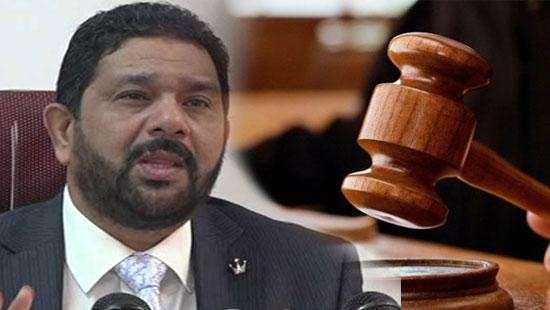Case Overview
This Supreme Court fundamental rights application concerns the alleged violation of constitutional rights under Articles 12(1), 13(1), and 13(2) of the Sri Lankan Constitution. The petitioner, Sansoon Salley Mohamed Azath, a political figure and leader of the National Unity Alliance, challenged his arrest and detention under the Prevention of Terrorism Act (PTA), claiming the process was arbitrary, unlawful, and malicious.
Legal Framework
- Articles in Question:
- Article 12(1): Right to equality and equal protection under the law.
- Article 13(1): Protection from arbitrary arrest unless in accordance with the law.
- Article 13(2): Protection from unlawful detention without being presented to a Magistrate.
- Applicable Statutes:
- Prevention of Terrorism Act (PTA):
- Section 6(1): Specifies the authority for arrests based on reasonable suspicion.
- Section 9(1): Allows detention orders upon reasonable suspicion of unlawful activity.
- Penal Code Section 120: Addresses acts intended to incite hatred or communal disharmony.
- Prevention of Terrorism Act (PTA):
Case Background
- The petitioner was arrested on 16 March 2021 following statements made at a press conference advocating for Muslim laws in personal matters. Media misreporting portrayed these statements as promoting extremism.
- The Criminal Investigations Department (CID) arrested the petitioner based on alleged violations of:
- Penal Code Section 120.
- PTA Section 2(1)(h).
- ICCPR Act Section 3(1).
- A detention order was issued on 19 March 2021 citing connections to terrorism, including aiding Easter Sunday attack suspects.
Key Issues
- Legality of Arrest:
- Whether the petitioner’s arrest adhered to the PTA requirements of reasonable suspicion and proper authorization.
- Validity of Detention:
- Whether the detention order was lawfully issued and supported by sufficient material evidence.
- Malice in Actions:
- Allegations that the arrest and subsequent detention were politically motivated and not based on genuine security concerns.
Court’s Findings
1. Violation of Article 13(1) (Arbitrary Arrest)
- Deficiencies in Authorization:
- The CID document authorizing arrest (3R1) lacked specific details regarding the petitioner’s suspected offenses.
- The authorization failed to establish reasonable suspicion as required by PTA Section 6(1).
- Misrepresentation of Evidence:
- Statements at the press conference, as per transcripts ([P-2(b)]), promoted ethnic harmony rather than violence or disharmony.
- Subjective and Objective Tests:
- While CID officers claimed subjective suspicion, no objective evidence or reasonable grounds supported the arrest.
2. Violation of Article 13(2) (Unlawful Detention)
- Insufficient Material for Detention:
- Respondents failed to submit evidence presented to the President for the issuance of the detention order under PTA Section 9(1).
- The detention order was deemed mechanical and invalid due to the absence of necessary evidence.
- Breach of Procedural Safeguards:
- The petitioner was not brought before a Magistrate within the stipulated time, violating constitutional protections.
3. Violation of Article 12(1) (Equality Before the Law)
- Unreasonable and Arbitrary Actions:
- Arrest and detention were carried out in a manner that disregarded procedural fairness and equal treatment under the law.
- Malicious Intent:
- The Court identified malice in the CID’s conduct, including false assertions in reports and politically charged statements by the Minister of Public Security (5th respondent).
Judgment and Relief
- Declaration of Violations:
- Fundamental rights under Articles 12(1), 13(1), and 13(2) were violated by the respondents (3rd, 4th, and 5th).
- Compensation:
- The State was ordered to pay Rs. 75,000 to the petitioner for the unlawful acts and resulting harm.
- Observations:
- The Court underscored the importance of adherence to legal procedures to prevent misuse of anti-terrorism laws.
Implications
Legal Implications:
- Strengthened judicial scrutiny over the use of anti-terrorism laws.
- Reiterated the constitutional mandate to protect personal liberties against arbitrary state actions.
Policy Recommendations:
- Ensure rigorous training for law enforcement on legal standards for arrests under special statutes like the PTA.
- Establish transparent review mechanisms for the issuance of detention orders.
Societal Impact:
- The case highlights the potential misuse of anti-terrorism measures for political purposes, raising awareness about the need for judicial oversight and procedural safeguards.
This judgment reinforces the primacy of constitutional rights and underscores the judiciary’s role in balancing national security concerns with individual liberties.
Download Full Judgement














